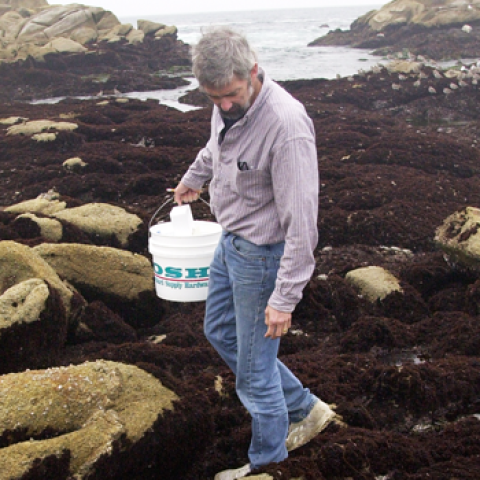Interdisciplinary Initiatives Program Round 4 – 2008
Stephen Palumbi, Biology
Atul Butte, Medicine - Sports Medicine Institute
Arthur Grossman, Carnegie Institute
John Pringle, Genetics
Global climate change threatens to dramatically affect ecological systems worldwide. Coral reef ecosystems are among the most important and most threatened. Reef-building corals have already experienced massive mortalities from repeated heat stress events, and the combination of changing climates with local forces like overfishing and pollution leads to a ‘perfect storm’ of reef degradation. Proactive and adaptive management of coral reefs will be necessary if the world’s reefs are to remain healthy through the 21st century. However, because coral’s physiological stress is generally invisible until near-death, reef managers lack necessary tools to act before it is too late. Using cutting edge techniques commonly employed in public health research, we are working to develop an early diagnosis tool for detecting both coral stress and coral populations more likely to resist stress.
To accomplish this goal, we have built a team of scientists with expertise ranging coral reef molecular ecology, algal physiology, cell biology, and medical bioinformatics. This past year, members of our team performed heat stress experiments with populations of reef coral in which some corals show surprising resistance to heat stress. We are now using cutting-edge next generation sequencing techniques to identify bio-markers of heat-stress and heat stress resistance in these corals. In the next year, we will target these biomarkers and develop a low-complexity, cost-effective tool that both identifies early stages of heat stress and indicates a corals’ susceptibility to this stress. Such a tool will inform reef managers in three ways: it will (1) serve as a regular ‘report card’ to evaluate management actions, (2) help identify coral populations more resistant to stress, and (3) serve as an early-warning trigger for more intensive interventions. The deployment of this tool will provide reef managers with the information they need to both better plan management strategies and more flexibly apply management tactics to maintain healthy reefs in the face of global climate change.




